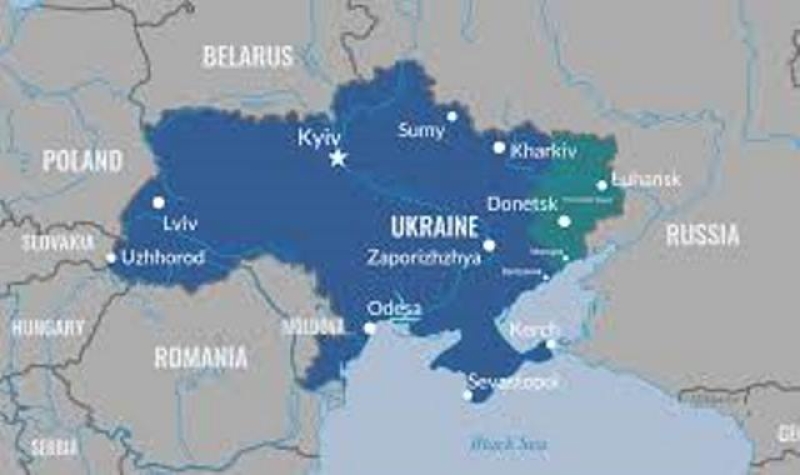- UN Chief Urges Action to Halt Mideast Escalation |
- Top Iranian Commanders Killed as Tensions Escalate |
- Multiple Arab states that host US assets targeted in Iran retaliation |
- Dhaka’s air quality 3rd worst in the world Sunday morning |
- Iran names 3-men body to cover transition as Khamenei’s dead |
Ukraine's new procurement agency aims to boost NATO ambitions

NATO has emphasized that Ukraine must address corruption & implement broader anti-graft measures.
KYIV, Ukraine, Dec 13 (AP/UNB) — Ukraine’s Defense Ministry last year introduced a state agency to reform its military procurement process and combat long-standing corruption, a significant step in its pursuit of NATO membership.
The State Logistics Operator, locally known as DOT, oversees purchases of nonlethal military goods, including food, clothing, and fuel. According to its CEO, Arsen Zhumadilov, the agency has already fulfilled 95% of requested orders while saving 25% in costs. DOT is also preparing to begin drone procurement soon.
These reforms are part of Ukraine's strategy to align with NATO standards. Officials argue that membership in the alliance is vital for deterring Russian aggression, though political challenges remain. Some NATO member states are hesitant to admit Ukraine, fearing an escalation of the conflict with Moscow.
Meanwhile, NATO has emphasized that Ukraine must address corruption and implement broader anti-graft measures.
DOT’s progress contrasts with ongoing difficulties within the Defense Ministry, led by Rustem Umerov. Despite DOT’s success, restructuring the ministry and addressing corruption in lethal military procurement remain slow-moving.
Western officials have praised DOT’s achievements but continue to monitor its performance closely. Three Western diplomats, speaking anonymously, expressed optimism about the agency’s results one year after its establishment.
DOT represents a blend of modern innovation and legacy bureaucracy. Its office reflects a startup culture, starkly contrasting the traditional practices of one of Ukraine’s most rigid institutions. This duality mirrors the dynamics of the war, where advanced technologies like drones coexist with outdated trench warfare.
“We understand that NATO, the G7, and member countries are closely watching whether we can establish a procurement system that is resilient, efficient, and free from corruption,” Zhumadilov said.
The agency was formed in response to scandals under former Defense Minister Oleksii Reznikov, including overpriced food contracts and substandard winter gear. President Volodymyr Zelenskyy tasked Umerov, Reznikov’s successor, with increasing transparency in defense procurement.
DOT’s flagship initiative, DOT-Chain, is a digital platform designed to streamline procurement, from order submission to invoicing. It promises to cut delivery times by 75% and is the largest digital project in the ministry. Initially focusing on food supplies, the system may expand to other areas in the future.
However, resistance persists. Some ministry officials remain attached to manual paperwork, despite DOT’s efforts to modernize processes. “The volume of paperwork they manage weekly is unsustainable,” Zhumadilov added.
A planned merger between DOT and the Defense Procurement Agency, responsible for lethal supplies, was scrapped after NATO advised against it, raising questions about Umerov’s decisions.
Despite challenges, DOT remains committed to reforming Ukraine’s defense sector. “We are preserving our own culture while navigating resistance,” Zhumadilov said, emphasizing the agency’s role in Ukraine’s NATO ambitions.

